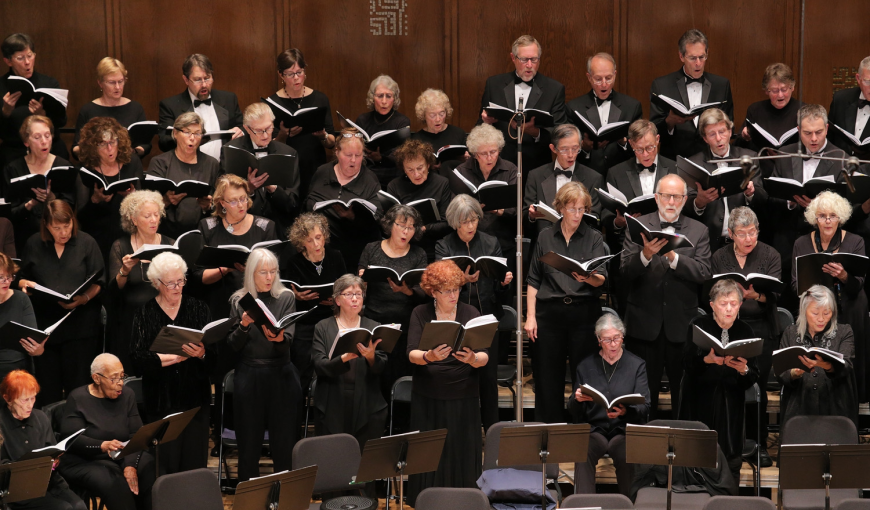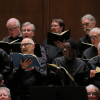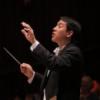
For decades now, the Berkeley Community Chorus & Orchestra (BCCO) has presented bold, ambitious programs to rival any big professional choir, and so it is at the start of the 2024 season.
On the program: Michael Tippets’s A Child of Our Time, a grand oratorio about inhumanities leading to wars and the tragedies that follow — an 80-year-old work seamlessly in sync with today’s dismal headlines. The concerts also include the premiere of Sam Wu’s BCCO-commissioned the winds blow full of sand.
As always, admission is free, donations are accepted, and no registration is required. There are three performances in UC Berkeley’s Hertz Hall: Jan. 5 at 7:30 p.m. and Jan. 6 and 7 at 3 p.m.
Ming Luke’s community singers, who join the chorus without auditioning, have received audience and critical acclaim for performing large-scale works by Mozart, Brahms, Felix Mendelssohn, Luigi Cherubini, Benjamin Britten, Leonard Bernstein, and many others.
Tippett (1905–1998) began to write A Child of Our Time shortly after the outbreak of World War II in 1939. A committed pacifist, he had a deep compassion for the poor and those oppressed by the Nazi regime in Germany. His anti-war struggles in England led to his brief imprisonment in 1943.
A Child is constructed in the classical oratorio form. The chorus and a quartet of soloists sing in Part 1 of the fears and sorrows of the preceding decade. The BCCO soloists are soprano Brandie Sutton, alto Sara Couden, tenor Jonathan Elmore, and bass Kirk Eichelberger.
Part 2 dramatizes the emotions and tragedies of the life of Herschel Grynszpan (the eponymous child of the piece’s title), a German Jewish teenager whose assassination of a Nazi official in Paris triggered Kristallnacht.
Part 3 searches for resolution and reconciliation, recognizing the coexistence of both the awfulness of the human predicament and the hope for peace. Throughout the work, Tippett incorporates African American spirituals, such as “Steal Away” and “Nobody Knows the Trouble I’ve Seen.”
Sam Wu composed the wind blows full of sand after he won BCCO’s Emerging Composer Competition in 2019. The piece was originally scheduled for performance in spring 2020 but was delayed by the pandemic.
It is a choral and orchestral setting of a poem by the classical Chinese poet Li Po about the pain of separation from family and friends and a land ravaged by war, as retold by Ezra Pound in “Lament of the Frontier Guard.”
Wu is placing his music at the boundaries of different cultures, creating a dialogue in composition between musical traditions and their respective instruments, such as the Mongolian horsehead fiddle and the cello.




